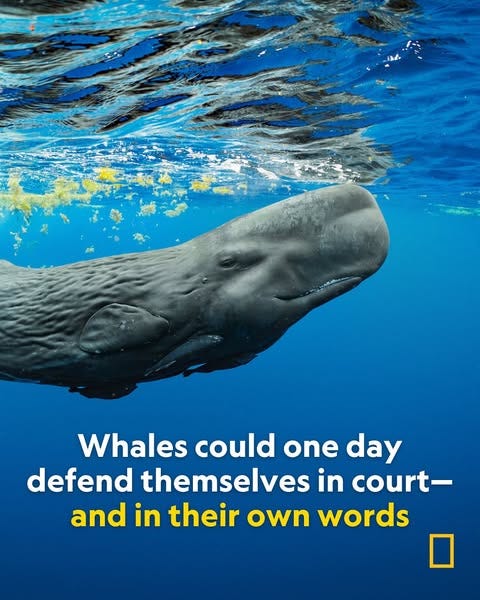Why They Keep Using Our Grief (Issue #118)
The cruel playbook that turns heartbreak into headlines and then policy.
I know how frustrating paywalls are! When possible, I’ll try to offer gift links through my subscriptions to support access to high-quality journalism.
Hi friends!
In 2018, one image seared itself into our memory: a little girl crying as her mother was detained (gift link). It became the face of migrant family separation.
That was the summer when the phrase “kids in cages” echoed across protests (gift link), news cycles, and social media feeds. A few weeks ago, I came across an episode of The Daily that reminded me of that moment: “Trump Said Family Separations Would End. They’re Happening Again.” (gift link). Family separation was terrifying then, and hearing that it’s resurfacing now wasn’t surprising, but it was heartbreaking.
I remember it more in outlines than in detail. I was younger then, I don’t have kids, but it’s still impossible not to feel gutted watching families torn apart. I ran a poll on the Truer Crime podcast Instagram to see what other people remembered. The answer? “Kids in cages.” over and over again.
Back in 2017, during the first Trump administration, the policy unfolded gradually at first, before exploding in mid-2018 when Attorney General Jeff Sessions announced a “zero-tolerance” policy for migrants illegally crossing the border. But since children can’t be jailed, they were separated from their parents instead.
The Trump administration claimed it was all a deterrent. Most Americans, however, saw family separation for what it was: a form of legal cruelty. According to an average of three polls conducted around June 2018, only 25 percent of Americans identified in support of family separation. And within weeks, the extraordinary unpopularity of the policy led Trump to sign an executive order halting the practice. By June 26th, a federal judge ordered that previously separated migrant children be reunited with their parents. It wasn’t until years later, in court, that the full scope came out: more than 5,500 children had been separated under Trump’s first term. And even years after the policy ended, well into the Biden administration, hundreds of families were still waiting to be reunited.
That summer, another story dominated the headlines. One I covered on Truer Crime this month: the murder of Mollie Tibbetts.
Mollie disappeared while jogging in her hometown of Brooklyn, Iowa, in July 2018. Investigators found her body in a cornfield after Cristhian Bahena Rivera confessed. (You can listen to my two-part coverage of the case on Spotify or Apple Podcasts if you want the full deep dive). Sadly, the story didn’t stay contained. Rivera was undocumented and Mollie’s murder suddenly became a political talking point.
Mollie’s mom, Beth Calderwood, told RollingStone that she was at home after her daughter’s memorial service when she first heard Trump use Mollie’s story.
At that West Virginia rally, he was talking about Mollie, but he never said her name. Not once. He just referred to her as “that incredible, beautiful young woman,” using her death as evidence for harsher immigration laws, before swiftly pivoting to his next campaign talking point. A few days later, the president’s son published an op-ed in the Des Moines Register, where he railed against his political opponents and claimed Mollie’s death had exposed “the true radical face of the Democrats” and their “open-borders agenda.” Meanwhile, former Speaker of the House Newt Gingrich emailed Axios to make sure they planned to cover Mollie’s case. Republican politicians, he felt, should angle to make Mollie Tibbetts a household name by the midterms.
Her family pushed back hard. Her mom, Linda Calderwood, said the political takeover had created an environment of divisiveness and hatred “that Mollie would not have stood for.” Her father, Rob Tibbetts, wrote an op-ed in the Des Moines Register where he called the politicization “heartless" and "despicable.”
But Mollie’s story wasn’t the last time grief was turned into a political weapon. In 2024, Nathan Clark, the father of 11-year-old Aiden Clark who was killed after his school bus was struck by a Haitian immigrant, begged politicians to stop using his son’s story for their agendas. His pleas echoed almost word for word what Mollie’s dad had written 6 years earlier.
And that’s the connection I can’t stop thinking about. While Mollie and Aiden’s families were forced to watch their children’s deaths become political fodder, Trump was diverting attention from policies like family separation. He used these stories to stoke fear, justify cruelty, and turn grief into fuel.
Which brings us back to today. According to a New York Times investigation, Trump’s administration has revived family separation, this time under a new guise. Instead of automatically splitting children from their parents at the border as in 2018, ICE now tells families they can either return to their home country together, or stay in the U.S. and face criminal charges and if they choose the latter – they will be separated. Officials insist that “ICE does not separate families,” placing the blame on parents’ “choice.” But when families face persecution or danger if they return home, the so-called choice isn’t really a choice at all.
It’s a rerun of a policy Americans already rejected, dressed up as something new. And I can’t help but think: it won’t be long before another tragedy is pulled into the spotlight, politicized to distract us from what’s really happening.
We don’t have to look far. Just this week in Minneapolis, a mass shooting at a Catholic school left two children dead. As soon as it became public that the shooter was a trans woman, the far-right wasted no time turning the tragedy into an attack on the trans community.
The cruelty of that pivot felt achingly familiar, the same playbook we’ve seen with Mollie, and then with Aiden.
It’s easy to think of these new immigration deterrence practices as a distinct political moment, but nothing happens in a vacuum. The first time Trump tried family separation, it backfired. Voters were disturbed by photos of crying children, and organized in the streets demanding an end to the practice. Trump signed an executive order, but instead of backing down, he pivoted. He spent years drumming up anti-immigrant sentiment, invoking tragedies like those of Mollie Tibbetts and Aiden Clark to justify his policies. Now, in a new term, family separation is back. Packaged in different language but led by the same goal: deter immigration by inflicting cruelty.
And cruelty doesn’t only live in policies, because rhetoric alone can do damage. When Mollie’s case was politicized, Brooklyn, Iowa’s immigrant community faced growing hostility. In the midst of it, her family took in Ulises Felix, the son of Mexican immigrants who had fled town after threats against the Latino community became overwhelming. Ulises stayed to finish his senior year of high school with the Tibbetts family’s support, but with his own mom and dad a state away. His story might not look like the “kids in cages” narrative that dominated the headlines in the summer of 2018, but it’s still a form of family separation.
Seven years later, I’m sitting with all of this, Mollie, Aiden, Ulises, family separation (then and now), even what just happened here in Minneapolis, and realizing how much our politics runs on these cycles. A tragedy happens. Grief gets hijacked. Fear gets stoked. And policies that should horrify us creep back into view.
That’s why it matters to pause and look deeper. The next time a story is pulled into the spotlight, we should ask: What purpose is this serving? What policy is it justifying? And who else is quietly being harmed while our attention is being pulled elsewhere?
The answers won’t always be easy. But noticing the pattern is the first step toward resisting it. It’s how we hold on to compassion in the face of cruelty—and how we begin to imagine something better.
A round-up of things to watch, read, and listen to as you head into the weekend.
Note: Links preceded by an asterisk (*) are affiliate links that allow me to collect a small commission when you purchase something I’ve recommended. That said, I can promise I’ll only ever share items I love. Buying through these links is one way to support me and my small biz. ❤️
The New York Times: ‘I Don’t Ever Want to Be Free From the Pain of Missing My Children’ (gift link) by Alexandra Alter
This is a profile on writer Yiyun Li, whose newest memoir follows her journey through grief in the wake of her son James’ death — the second son she lost to suicide. It’s a compassionate and illuminating interview, tracing Li’s impressive career, and examining the limits of language in articulating our most painful emotions.
*Things in Nature Merely Grow by Yiyun Li
And once you’ve read the profile, be sure to check out the book it’s centered around. The description calls it a “defiant work of radical acceptance,” and I’m so excited to check it out.
Podcast: Mystery Show
This podcast released only one season all the way back in 2015, but I was just recently hooked by it’s premise. Every episode explores some kind of minor mystery, explored throughout the show by host Starlee Kine’s own investigative work. The first episode I listened to was a story of a woman who rented a video and returned the next day to find the store gone without a trace. The mysteries are low-stakes but delightful, and I’m eager to listen to the rest of the series.
Things to try + share in the group chat.
I’m really excited to check out the most recent release by Taylor Jenkins Reid, *Atmosphere. A historical fiction romance novel centered around NASA’s Space Shuttle program? Count me IN!!
A new initiative is attempting to translate the expressions of sperm whales, potentially opening the door to their ability to have legal protections and rights. Yep, you heard that right. Learn more below!
Last Friday, I shared some of the media carrying me through these final days of summer. Check it out below!
Have a great weekend!
Want to stay connected between now and next Friday? Don’t be a stranger!! Make sure to follow me on Instagram and TikTok. Know someone who you think would like Sincerely, Celisia? It would mean the world if you could help spread the word by sharing this newsletter through the button below!! <3






